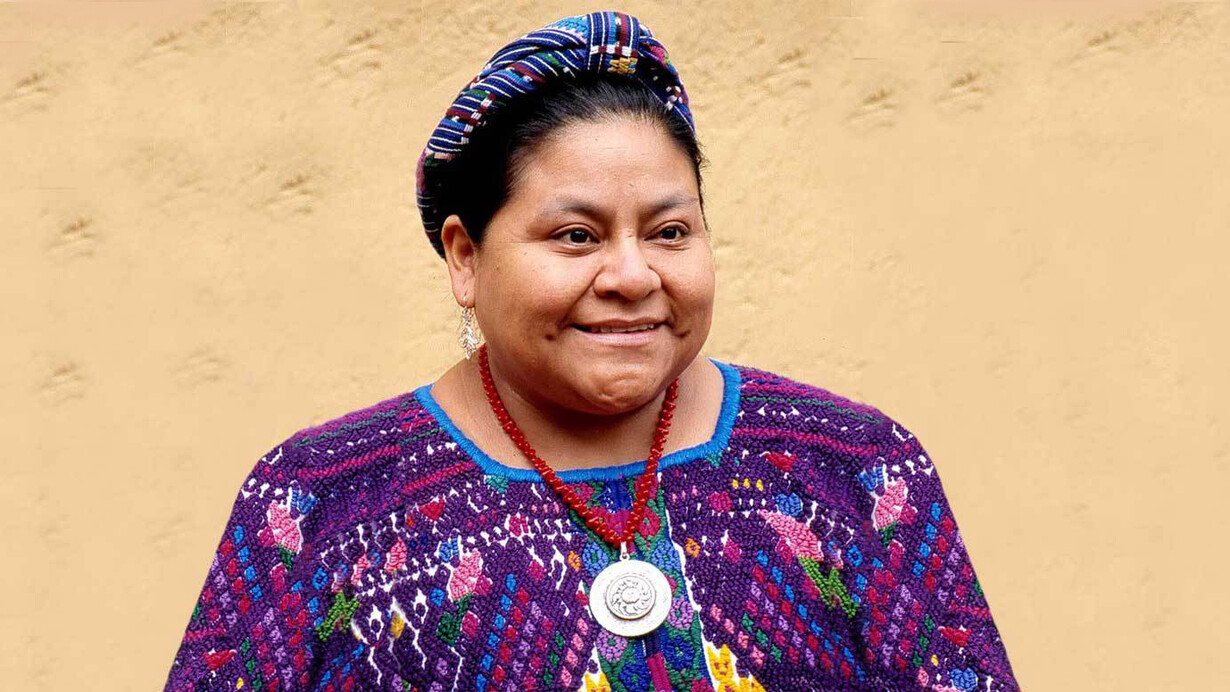A Voice for Indigenous Peoples
Rigoberta Menchú, an indigenous activist of Maya Quiché origin, has dedicated her life to defending human rights and the dignity of indigenous peoples in Guatemala and around the world. Her tireless fight for social justice and equality earned her the Nobel Peace Prize in 1992, making her the first indigenous woman to receive it.
A Childhood in Injustice
Born on January 9, 1959, in Chimel, a small Guatemalan village, Rigoberta grew up among poverty and discrimination. Her family worked as farm workers under extreme exploitation, an experience that profoundly shaped her worldview. During the Guatemalan Civil War, Rigoberta had devastating losses: her father, mother, and brothers were brutally murdered by the military regime due to her activism.
A Voice for the Silenced
Despite her personal tragedies, Rigoberta chose to transform her pain into action. In 1983, she published her autobiography, I, Rigoberta Menchú: An Indian Woman in Guatemala, which not only tells her life story but also documents the atrocities committed against indigenous Guatemalans. This book became a symbol of resistance and the fight for human rights.
Impact and Legacy
Rigoberta has tirelessly worked to bring the struggles of indigenous communities to international platforms, such as the United Nations. Her efforts have inspired social movements across Latin America to demand rights to land, education, and cultural preservation.
In her own words:
“I want to be the voice of those who have no voice and bring the truth to the entire world.”




